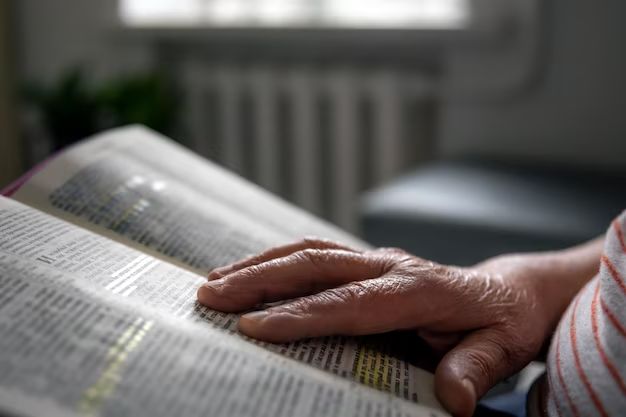Huldah was a prophetess who lived during the time of King Josiah’s reign in Judah. She is mentioned briefly in 2 Kings 22 and 2 Chronicles 34, but her role was significant in affirming the authority of God’s Word during Josiah’s religious reforms. Here is an overview of what the Bible reveals about Huldah:
Huldah was sought out for her wisdom and prophetic gift
When the Book of the Law (likely Deuteronomy) was discovered during renovations of the temple, King Josiah recognized that Judah had strayed from God’s commands and ordered the priests and scribes to “inquire of the LORD” regarding the words in the book (2 Kings 22:13). This inquiry was directed to Huldah, indicating her reputation as a prophetess of God’s wisdom. As a prophetess, Huldah would have been gifted by God to speak His words through divine inspiration (2 Peter 1:21). Josiah wisely turned to a prophet like Huldah to determine if the newly discovered book was indeed God’s Law.
She was consulted by Hilkiah the high priest and other officials
The high priest Hilkiah, the priest Ahikam, the court secretary Shaphan, and King Josiah’s servant Asaiah approached Huldah to consult her prophetic wisdom regarding the Book of the Law (2 Kings 22:14). The fact that these high-ranking religious and political officials sought her counsel shows Huldah’s respected position in Judah as a prophetess speaking for God. Her reputation was clearly widespread if she was known to these leaders.
Huldah confirmed that the Book of the Law was from God
After hearing the words from the Book of the Law read to her, Huldah delivered this message from God to the priests and officials:
Thus says the Lord, the God of Israel: Tell the man who sent you to me, Thus says the Lord, Behold, I will bring disaster upon this place and upon its inhabitants, all the words of the book that the king of Judah has read. Because they have forsaken me and have made offerings to other gods, that they might provoke me to anger with all the work of their hands, therefore my wrath will be kindled against this place, and it will not be quenched. But to the king of Judah, who sent you to inquire of the Lord, thus shall you say to him, Thus says the Lord, the God of Israel: Regarding the words that you have heard, because your heart was penitent, and you humbled yourself before the Lord, when you heard how I spoke against this place and against its inhabitants, that they should become a desolation and a curse, and you have torn your clothes and wept before me, I also have heard you, declares the Lord. Therefore, behold, I will gather you to your fathers, and you shall be gathered to your grave in peace, and your eyes shall not see all the disaster that I will bring upon this place. (2 Kings 22:15-20)
Huldah gave a sobering message that disaster would come upon Judah for forsaking God. But she also delivered a word of mercy – because Josiah’s heart was penitent, he would not see the coming disaster. Her prophetic words powerfully affirmed the authority of the Book of the Law as God’s word.
She lived in Jerusalem, in the Second District
The officials found Huldah living in Jerusalem, in an area called the Mishneh or Second District (2 Kings 22:14). This district was probably part of the expanded area of Jerusalem outside the City of David and its original walls. Her residence there indicates she had a house in one of the nicer areas of Jerusalem.
She was the wife of Shallum, keeper of the wardrobe
Huldah’s husband is identified as Shallum, who had a distinguished role as the “keeper of the wardrobe” (2 Kings 22:14). The wardrobe he cared for likely contained the priestly garments and items used for religious services at the temple. As his wife, Huldah was also associated with prominence in the worship activities centered at the temple.
Parallels between Huldah and Deborah
Huldah shares similarities with an earlier female prophetess, Deborah, who judged and led Israel during the time of the judges (Judges 4:4). Both were wives, both were recognized as prophetesses speaking the very words of God, and both played decisive roles during pivotal times in Israel’s history. When Israel was devoid of strong male leadership and guidance from God’s Spirit, God raised up these women as prophetesses to direct His people. Their examples display how God sovereignly chooses and gifts people, including women, to be prophetic voices according to His divine purposes.
Huldah’s legacy as a prophetess
Though little is written about Huldah, her legacy resounds as a prophetess who:
– Was sought for her wisdom, discernment, and intimacy with God
– Spoke God’s own words with authority to religious and political leaders
– Courageously proclaimed God’s judgment and mercy
– Played a crucial role in affirming Scripture’s authority during a key religious reform
– Strengthened a revival of true worship of God in Judah
Her faithful service as a prophetess resulted in God’s Word coming alive to King Josiah, spurring him on toward religious reformation that turned Judah back to true worship of God.
Though often overlooked, Huldah’s prophetic voice echoed the heart of God – His displeasure with sin, His compassion toward the repentant, and His desire for His Word to transform lives. Huldah stands as an inspirational example of a woman mightily used by God to influence the destiny of God’s people through her prophetic gift. Huldah spoke, and an entire nation listened.

